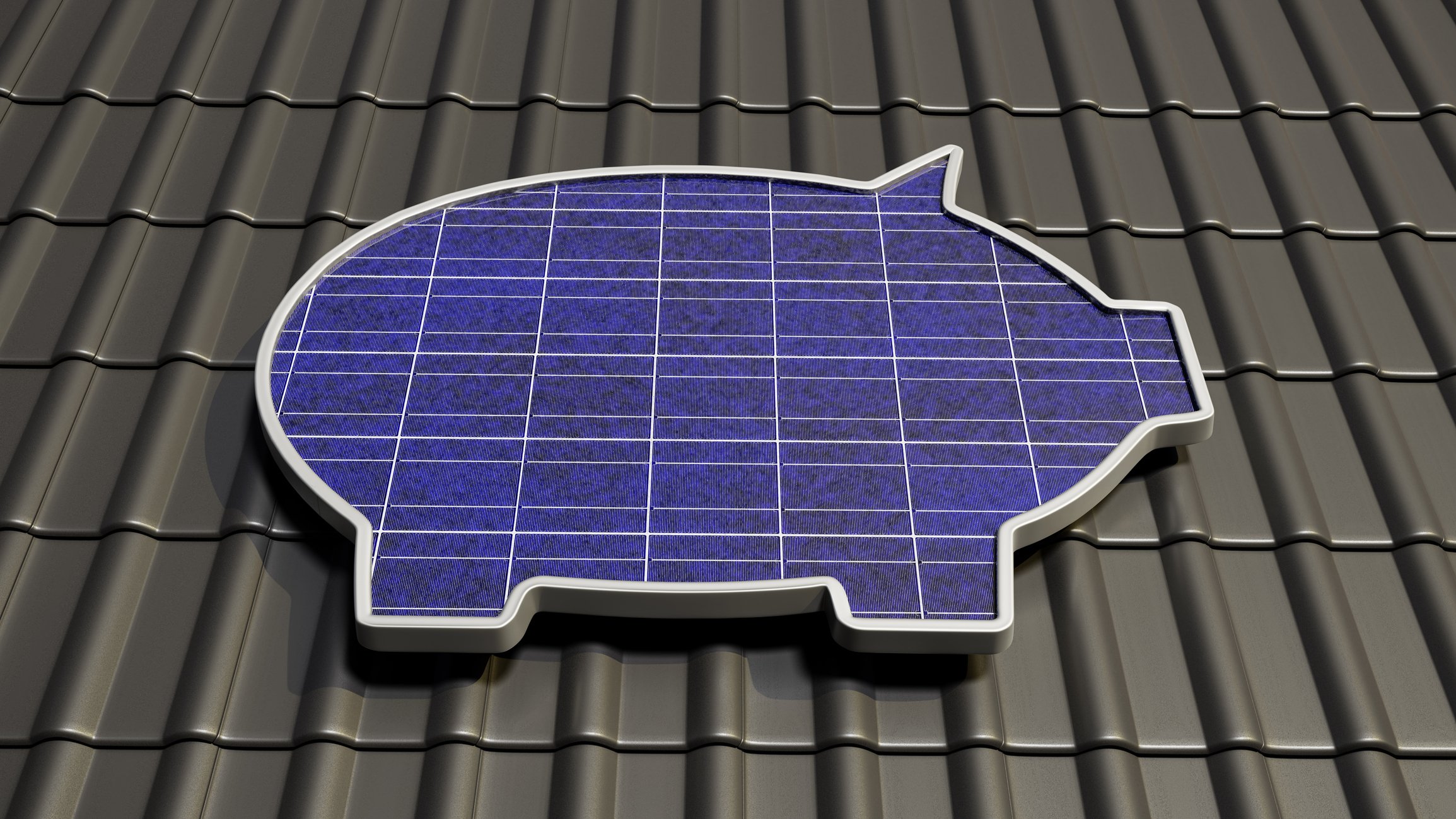
Struggling With Cash Flow? Finance Solar Power Equipment Without Tying Up Capital
Cash flow issues don’t just affect struggling businesses. In fact, for solar installers, they often show up when you’re busy and growing. You’ve got projects booked, customers ready and suppliers lined up, but you’re still waiting for payments from previous jobs.
The challenge isn’t that you don’t have work, it’s that you need to front the cost of equipment, labor and logistics long before you get paid. It’s a cycle most solar companies know all too well, and it's why more solar installers are choosing to finance solar power equipment. It’s a way to keep projects moving, protect your cash reserves, and take on more work without constantly juggling funds.
This blog explains how it works, why it helps, and how Ritalia Funding makes it easy for solar professionals to stay in control of their cash flow.
Why Cash Flow Gaps Are So Common in Solar
It’s not unusual for solar companies to have tens of thousands of dollars tied up in unpaid invoices or materials for jobs that haven’t started yet. You’re often responsible for purchasing panels, inverters and batteries upfront—sometimes before the permit is approved. Meanwhile, the client’s final payment won’t arrive until the system is installed and signed off.
You might also be waiting for rebate processing, tax incentive approvals, or utility green lights, which can all take weeks. In the meantime, you’ve got payroll, marketing and operations to manage.
When you're busy, these costs stack up fast. That’s when financing becomes more than a convenience. It’s a way to keep the momentum going.
What it Means to Finance Solar Power Equipment
 Financing solar power equipment simply means spreading the cost of your hardware purchases into monthly payments instead of paying the full amount upfront. It gives you the freedom to order the equipment you need, when you need it, without waiting for cash to clear or projects to close.
Financing solar power equipment simply means spreading the cost of your hardware purchases into monthly payments instead of paying the full amount upfront. It gives you the freedom to order the equipment you need, when you need it, without waiting for cash to clear or projects to close.
This type of lending isn’t designed for homeowners. It’s built specifically for solar businesses that need to stock up on materials, respond to high demand, or keep large jobs on schedule.
It can cover:
-
Solar panels and racking
-
Inverters and storage
-
Balance of system components
-
Project materials for residential or commercial installs
By financing the materials, you free up working capital that can be used elsewhere, whether that’s hiring, marketing, or expanding into new territories.
Why Financing Can Be Better Than Paying Upfront
It’s easy to assume paying cash is always the smarter move, but for growing solar businesses, that’s not always true. Paying upfront can leave you short when the next opportunity comes in. It also forces you to choose between finishing one job or starting another.
Financing gives you breathing room. You can accept more work, stay stocked with equipment, and move faster without putting strain on your cash position. It also helps when bulk-buying materials at a discount, something that can increase your margins over time.
The best part is that you don’t have to wait. With the right lending partner, you can get the funding you need quickly and keep your team working without interruption.
How Financing Supports Long-term Growth
Financing solar energy equipment is about more than solving short-term cash flow problems. It’s a good way to grow your business without taking unnecessary risks.
When you finance instead of paying upfront, you can:
-
Say yes to more projects at once
-
Stay flexible when payment timelines are delayed
-
Avoid dipping into emergency reserves or credit cards
-
Position yourself as more reliable to customers and suppliers
-
Build a predictable cost structure with consistent monthly payments
You’re not just filling a gap. You’re building a system that helps your business grow without constantly stopping to rebalance the books.
Different Types of Solar Power Loans
There are a few different ways to approach solar lending. Choosing the right one depends on your project size, timelines, and available capital.
Secured loans use business assets or equipment as collateral. They typically offer lower interest rates and longer terms, but they come with more paperwork and risk if payments are missed.
Unsecured loans don’t require collateral. They’re faster to approve and easier to manage, which is helpful for businesses that need quick access to funds. Ritalia Funding, for example, offers unsecured lending with no personal guarantees or financials required (although this is on a case-by-case basis).
You can also explore working capital loans, short-term credit lines, or project-based lending that ties the loan amount to the project’s expected revenue or timeline.
The key is to choose a structure that matches how your business actually operates, not one that slows things down with unnecessary friction.
How Ritalia Funding Helps Installers Move Faster
Traditional lending usually means paperwork, personal guarantees, long approval times, and jumping through hoops. For fast-growing solar companies, that just doesn’t work.
Ritalia takes a different approach. It’s designed to give installers quick, flexible access to funding so you can act fast and take on more projects without draining your accounts.
Here’s how the process works:
-
You include a monthly payment option in your customer proposal. This helps you position your offer as affordable and budget-friendly.
-
To get approved, you only need your company name and address. No personal guarantees, no financials, no delay.
-
Sign everything securely through DocuSign in just a few clicks.
-
Once verified, your supplier is paid directly, and you start repayment 30 days later.
The entire process is designed to fit how solar companies work—fast, busy, and always balancing multiple jobs at once.
When Financing Makes the Most Sense
Not every situation requires financing, but if you’re running a growing solar business, chances are you’ve already hit the point where it would help.
You might want to consider it if:
-
You’re turning down jobs because you can’t fund them all at once
-
You’re losing momentum between invoices
-
You want to grow but can’t afford to tie up your cash in equipment
-
You need more flexibility to react to new opportunities or challenges
Even if your business is stable, financing can help you stay that way. It’s not about taking on unnecessary risk, but more so about freeing yourself from the financial bottlenecks that slow things down.
Final Thoughts
If you’re constantly balancing new jobs with delayed payments, you’re not alone. Solar companies operate in a world where money goes out before it comes in, and without a strong cash flow strategy, that can become a problem fast.
Choosing to finance solar power equipment is a way to keep your business agile, well-stocked and ready to grow, without tying up your capital or relying on outdated lending processes.
Ritalia Funding offers a smarter way to move forward. No slow banks. No mountains of paperwork. Just fast, solar-focused lending that helps you get the job done. Ready to unlock more projects without the cash flow stress? Contact us today.
FAQs About Solar Financing for Businesses
What does it mean to finance solar power equipment?
It means using business-friendly lending to spread out equipment costs into monthly payments, so your company can keep projects moving without paying everything upfront.
How do solar power loans help with cash flow?
They give you the ability to order materials and start jobs without waiting for customer payments or incentive checks to clear, keeping your pipeline full.
What types of businesses is this for?
Solar installers, EPCs, integrators, and developers. Ritalia’s lending is designed specifically for businesses, not homeowners.
What’s the difference between financing solar energy equipment and a regular business loan?
Solar lending is tailored to the timelines, costs, and structure of solar projects. It’s often faster, more flexible, and easier to manage than traditional loans.
How fast can I get approved with Ritalia Funding?
Most approvals are on the same day with only your company name and address. There are no personal guarantees or financial statements required for funding up to $250,000.
.png?width=450&height=150&name=logo%20(1).png)

